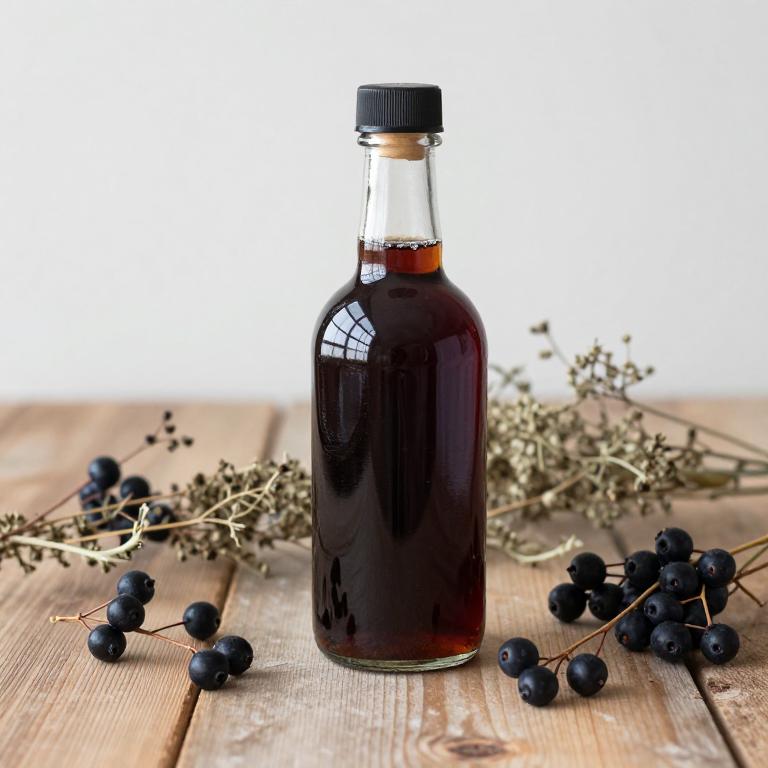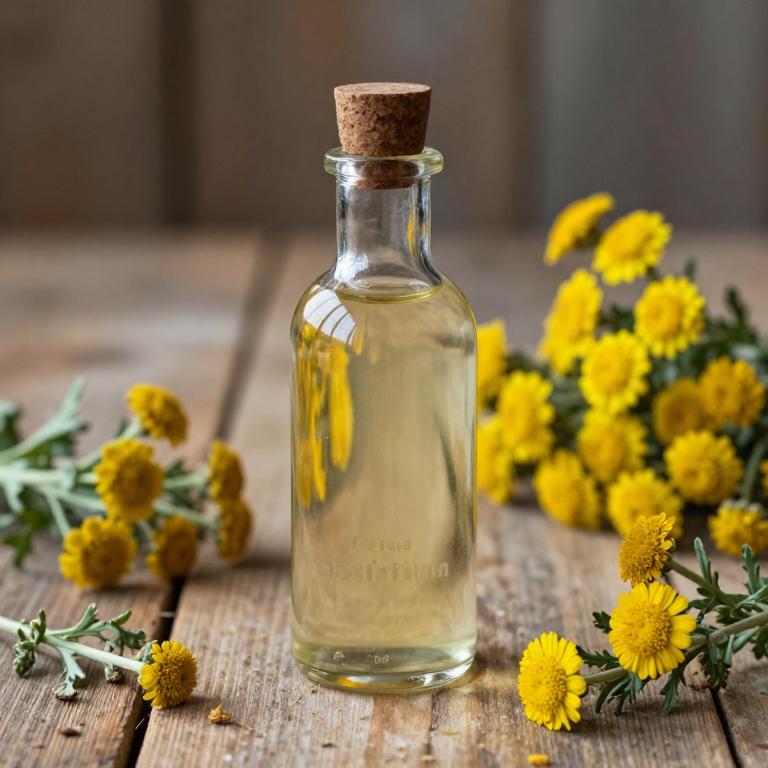10 Best Herbal Syrups For Fever

Herbal syrups for fever are traditional remedies that combine natural ingredients to help reduce body temperature and alleviate symptoms associated with mild fevers.
Common herbs used in these syrups include willow bark, echinacea, and ginger, which are known for their anti-inflammatory and antipyretic properties. These syrups are often preferred for their mild, soothing flavor and are considered safer alternatives to conventional pharmaceuticals, especially for children and adults with sensitive stomachs. They can be used as a complementary therapy alongside other treatments, but it is important to consult a healthcare professional before use, particularly for prolonged or high fevers.
Overall, herbal syrups offer a natural approach to managing fever while promoting overall wellness.
Table of Contents
- 1. Echinacea (Echinacea purpurea)
- 2. Ginger (Zingiber officinale)
- 3. Salvia (Salvia officinalis)
- 4. Peppermint (Mentha piperita)
- 5. Licorice (Glycyrrhiza glabra)
- 6. Thyme (Thymus vulgaris)
- 7. Rosemary (Rosmarinus officinalis)
- 8. Black elderberry (Sambucus nigra)
- 9. Wormwood (Artemisia absinthium)
- 10. St. john's wort (Hypericum perforatum)
1. Echinacea (Echinacea purpurea)

Echinacea purpurea, commonly known as purple coneflower, is a popular herbal remedy often used to support the immune system.
While it is frequently marketed for colds and flu, its use for fever is less common and not strongly supported by clinical evidence. Some traditional and alternative medicine practices suggest that echinacea may help reduce fever symptoms by promoting sweating and enhancing immune response. However, it is important to note that echinacea syrups should not replace conventional treatments for fever, especially in cases of high or persistent fever.
Always consult a healthcare professional before using echinacea or any herbal remedy, particularly for children or individuals with underlying health conditions.
2. Ginger (Zingiber officinale)

Zingiber officinale, commonly known as ginger, has been traditionally used in herbal syrups to help alleviate symptoms of fever due to its anti-inflammatory and antipyretic properties.
These syrups are often prepared by simmering fresh or dried ginger root with honey or other natural sweeteners, creating a soothing and effective remedy. The active compounds in ginger, such as gingerol and shogaol, are believed to help reduce body temperature and ease discomfort associated with fever. While ginger syrups are generally considered safe for most adults, they should be used with caution in children and individuals with certain medical conditions.
As a complementary therapy, ginger herbal syrups can support the body's natural healing process when used alongside conventional treatments for fever.
3. Salvia (Salvia officinalis)

Salvia officinalis, commonly known as sage, has been traditionally used in herbal medicine for its potential therapeutic properties, including its use in managing fever.
Herbal syrups made from sage are often prepared by combining the dried leaves of the plant with honey or other natural sweeteners, creating a soothing and aromatic remedy. These syrups are believed to have antiseptic and anti-inflammatory properties that may help reduce fever symptoms and support the body's natural healing process. While sage syrups are not a substitute for conventional medical treatment, they may offer complementary relief for mild fevers when used under the guidance of a healthcare professional.
However, it is important to note that the safety and efficacy of sage syrups for fever have not been extensively studied in modern clinical trials, and their use should be approached with caution.
4. Peppermint (Mentha piperita)

Mentha piperita, commonly known as peppermint, is often used in herbal syrups to help alleviate symptoms associated with fever.
These syrups are traditionally prepared by combining fresh or dried peppermint leaves with sugar and water, creating a soothing and aromatic remedy. The cooling properties of peppermint can help reduce body temperature and provide a refreshing effect, making it a popular choice for mild fevers. Additionally, the menthol content in peppermint may help ease headaches and congestion that often accompany feverish conditions.
While not a substitute for medical treatment, peppermint herbal syrups can serve as a natural complement to support comfort and recovery during a fever.
5. Licorice (Glycyrrhiza glabra)

Glycyrrhiza glabra, commonly known as licorice, has been traditionally used in herbal medicine for its potential therapeutic effects, including its use in syrups for fever.
The active compounds in licorice root, such as glycyrrhizin and flavonoids, are believed to possess anti-inflammatory and antiviral properties that may help reduce fever symptoms. Herbal syrups made from Glycyrrhiza glabra are often used to soothe sore throats and alleviate respiratory discomfort, which are common symptoms associated with fever. However, long-term use of licorice syrup can lead to side effects like hypertension and electrolyte imbalances due to its effects on the adrenal glands.
As a result, it is important to consult a healthcare professional before using licorice-based syrups, especially for prolonged periods or in individuals with pre-existing health conditions.
6. Thyme (Thymus vulgaris)

Thymus vulgaris, commonly known as thyme, has been traditionally used in herbal medicine for its antiseptic and expectorant properties.
Thymus vulgaris herbal syrups are often prepared by extracting the essential oils and active compounds from the fresh or dried leaves and flowers of the plant. These syrups are typically used to alleviate symptoms of respiratory infections and can help reduce fever due to their mild antipyretic effects. The presence of compounds like thymol and carvacrol contributes to its ability to support the body's natural defenses.
While thymus vulgaris syrups are generally considered safe when used as directed, it is advisable to consult a healthcare professional before use, especially for children or individuals with chronic health conditions.
7. Rosemary (Rosmarinus officinalis)

Rosmarinus officinalis, commonly known as rosemary, has been traditionally used in herbal syrups to help alleviate symptoms of fever due to its antiseptic and anti-inflammatory properties.
These syrups often combine rosemary with other herbs like willow bark or echinacea to enhance their fever-reducing effects. The essential oils in rosemary, such as cineole and camphor, are believed to support the body's natural cooling mechanisms and promote sweating, which can help lower body temperature. While not a substitute for conventional fever treatments, rosemary herbal syrups may offer a gentle, natural alternative for mild fevers.
However, it is important to consult a healthcare professional before using these syrups, especially for children or individuals with chronic health conditions.
8. Black elderberry (Sambucus nigra)

Sambucus nigra, commonly known as European elderberry, has been traditionally used in herbal medicine for its potential benefits in reducing fever.
Elderberry syrups are often made by combining the berries with honey or sugar and are believed to support the immune system. The high concentration of antioxidants and flavonoids in elderberries may help combat viral infections, which can contribute to fever symptoms. While some studies suggest elderberry may reduce the duration and severity of colds and flu, more research is needed to confirm its effectiveness for fever specifically.
It is important to consult a healthcare provider before using elderberry syrup, especially for children or individuals with underlying health conditions.
9. Wormwood (Artemisia absinthium)

Artemisia absinthium, commonly known as wormwood, has been traditionally used in herbal medicine for its potential fever-reducing properties.
When prepared as a herbal syrup, it may help support the body's natural processes in managing mild fever by promoting sweating and reducing inflammation. The active compounds in artemisia, such as thujone and volatile oils, are believed to contribute to its antipyretic effects. However, it is important to use artemisia absinthium syrups cautiously, as they can be toxic in high doses and may interact with certain medications.
Always consult a healthcare professional before using this herbal remedy, especially for children or individuals with chronic health conditions.
10. St. john's wort (Hypericum perforatum)

Hypericum perforatum, commonly known as St. John's wort, is traditionally used in herbal medicine for its potential anti-inflammatory and antipyretic properties.
While it is more widely recognized for its use in treating mild depression, some studies suggest that its compounds may help reduce fever by influencing the body's inflammatory response. Herbal syrups made from Hypericum perforatum are often prepared by extracting the dried plant parts with alcohol or water, resulting in a concentrated form that can be taken orally. These syrups are sometimes used as a natural alternative to conventional fever remedies, though their efficacy and safety should be discussed with a healthcare provider.
It is important to note that St. John's wort can interact with various medications, so careful consideration is necessary before use.